It could be straightforward, even comforting, to think about that utilizing AI instruments includes interacting with a purely goal, stoic, impartial machine that is aware of nothing about you. However between cookies, machine identifiers, login and account necessities, and even the occasional human reviewer, the voracious urge for food on-line providers have on your knowledge appears insatiable.
Privateness is a serious concern that each customers and governments have in regards to the pervasive unfold of AI. Throughout the board, platforms spotlight their privateness options—even when they’re onerous to search out. (Paid and enterprise plans usually exclude coaching on submitted knowledge fully.) However any time a chatbot “remembers” one thing can nonetheless really feel intrusive.
On this article, we are going to clarify tighten your AI privateness settings by deleting your earlier chats and conversations and by turning off settings in ChatGPT, Gemini (previously Bard), Claude, Copilot, and Meta AI that enable builders to coach their methods in your knowledge. These directions are for the desktop, browser-based interface for every.
ChatGPT
Nonetheless the flagship of the generative AI motion, OpenAI’s ChatGPT has a number of options to enhance privateness and alleviate considerations about consumer prompts getting used to coach the chatbot.
In April, OpenAI introduced that ChatGPT may very well be used with out an account. By default, prompts shared by way of the free, account-less model should not saved. However, if a consumer doesn’t need their chats used to coach ChatGPT, they nonetheless must toggle the “Momentary chat” settings within the ChatGPT dropdown menu on the high left of the display.
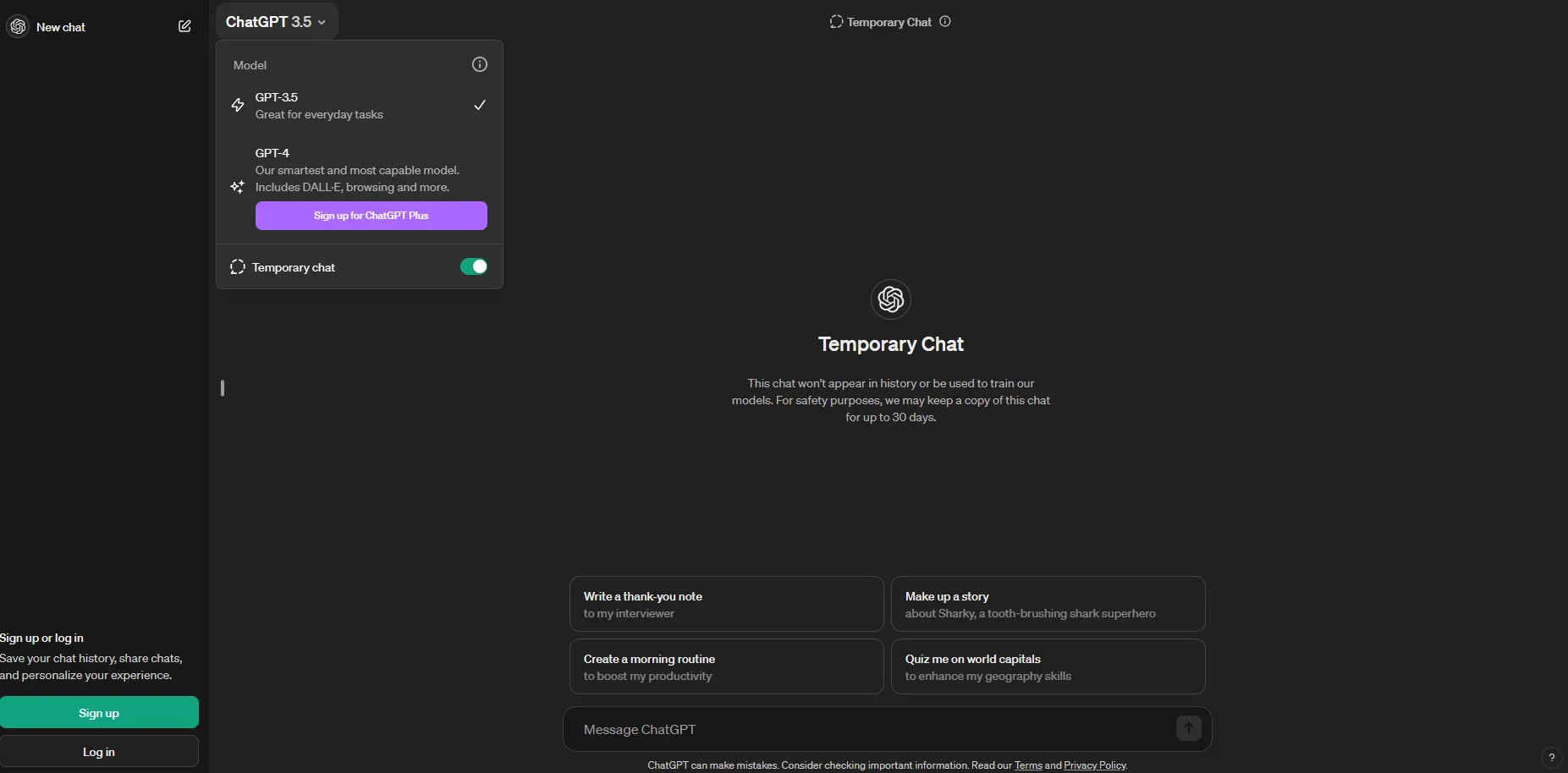
In case you have an account and subscription to ChatGPT Plus, nevertheless, how do you retain your prompts from getting used? GPT-4 provides customers the power to delete all chats underneath its common settings. Once more, to verify chats are additionally not used to coach the AI mannequin, look decrease to “Knowledge controls” and click on the arrow to the fitting of “Enhance the mannequin for everybody.”
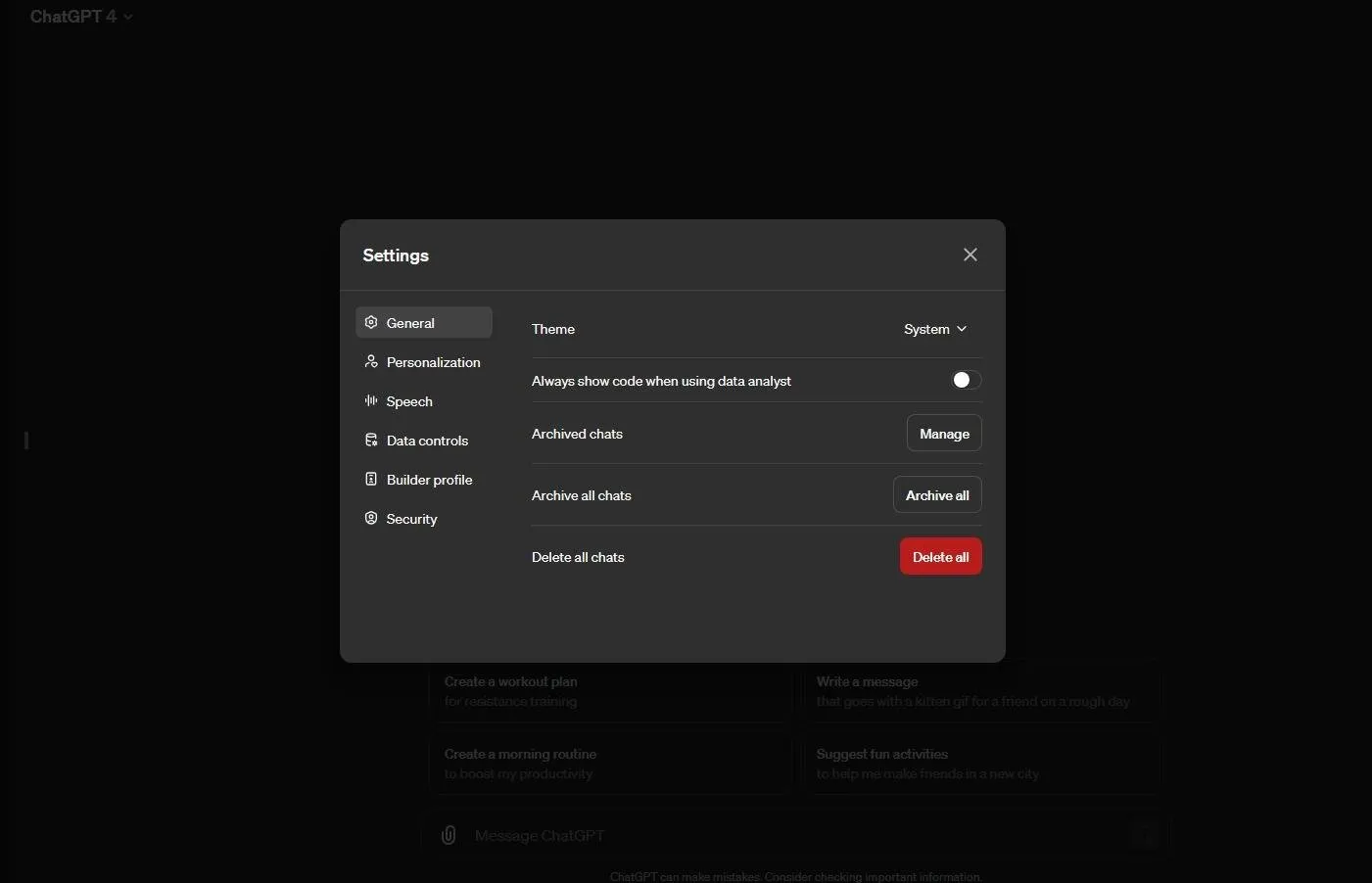
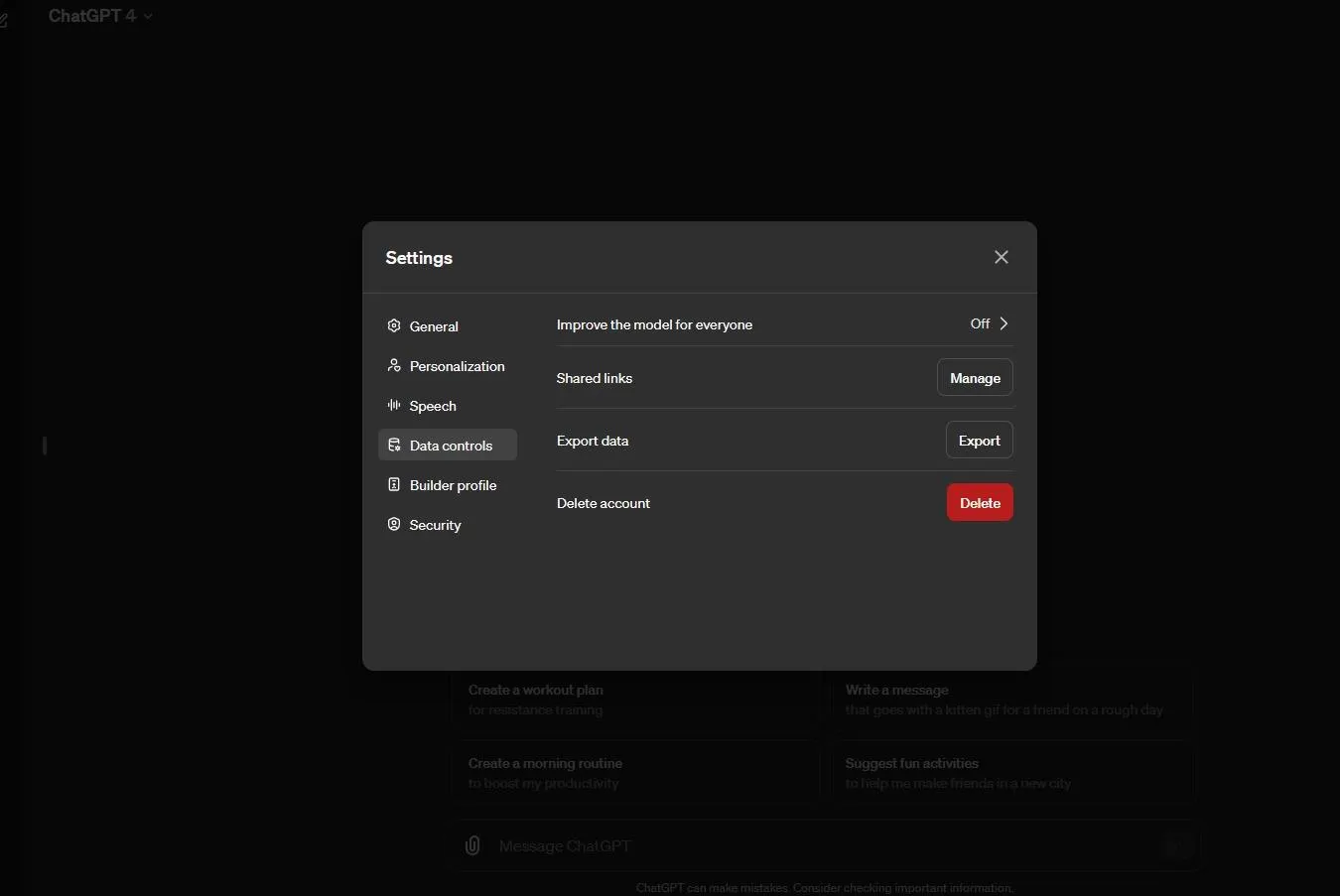
A separate “Mannequin enchancment” part will seem, permitting you to toggle it off and choose “Executed.” This may take away the power of OpenAI to make use of your chats to coach ChatGPT.
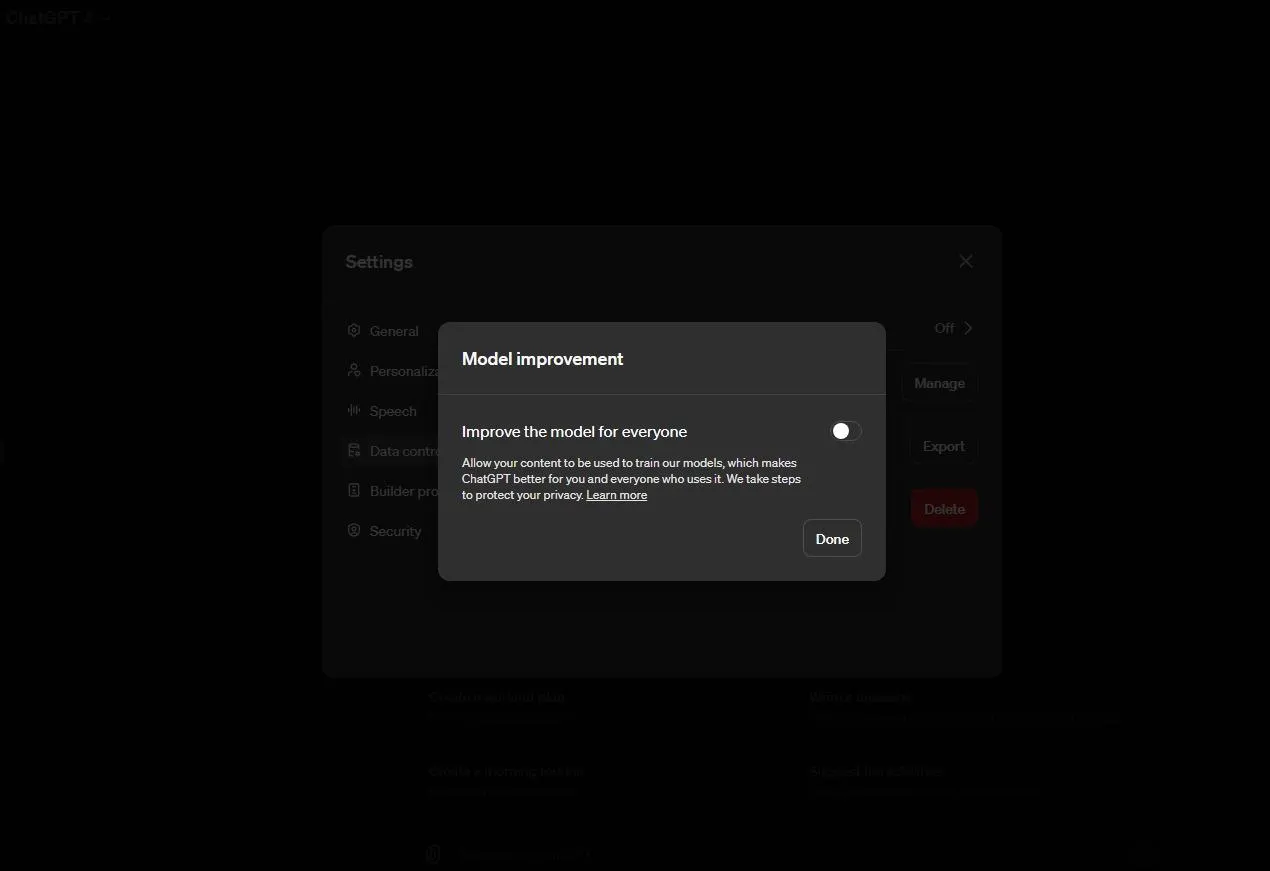
There are nonetheless caveats, nevertheless.
“Whereas historical past is disabled, new conversations gained’t be used to coach and enhance our fashions, and gained’t seem within the historical past sidebar,” an OpenAI spokesperson advised Decrypt. “To watch for abuse—and reviewed solely when we have to—we are going to retain all conversations for 30 days earlier than completely deleting.”
Claude
“We don’t practice our fashions on user-submitted knowledge by default,” an Anthropic spokesperson advised Decrypt. “To this point, now we have not used any buyer or user-submitted knowledge to coach our generative fashions, and we’ve expressly acknowledged so within the mannequin card for our Claude 3 mannequin household,”
“We could use consumer prompts and outputs to coach Claude the place the consumer provides us specific permission to take action, similar to clicking a thumbs up or down sign, on a particular Claude output to offer us suggestions,” the corporate added, noting that it helps the AI mannequin “be taught the patterns and connections between phrases.”
Deleting archived chats in Claude may also maintain them out of attain. “I don’t retain or have entry to any beforehand deleted chats or conversations,” the Claude AI agent helpfully solutions within the first particular person. ”My responses are generated primarily based on the present dialog solely.”
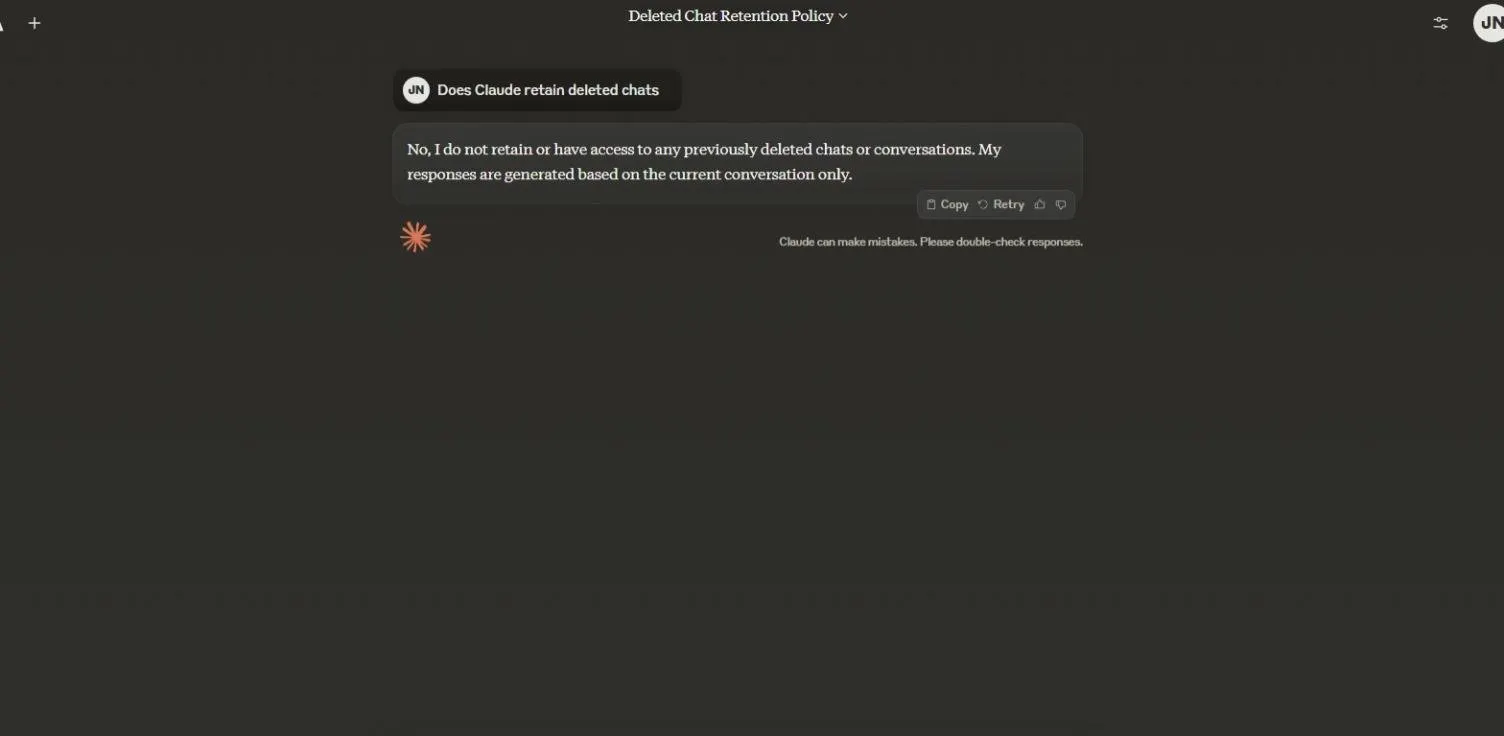
Like ChatGPT, Claude does maintain on to some info as required by regulation.
“We additionally retain knowledge in our backend methods for the period of time laid out in our Privateness Coverage except required to implement our Acceptable Use Coverage, handle Phrases of Service or coverage violations, or as required by regulation,” Anthropic explains.
As for Claude’s assortment of data throughout the net, an Anthropic spokesperson advised Decrypt that the AI developer’s internet crawler respects industry-standard technical indicators like robots.txt that web site house owners can use to opt-out of information assortment, and that Anthropic doesn’t entry password-protected pages or bypass CAPTCHA controls.
Gemini
By default, Google tells Gemini customers that “your conversations are processed by human reviewers to enhance the applied sciences powering Gemini Apps. Do not enter something that you just would not need to be reviewed or used.”
However Gemini AI customers can delete their chatbot historical past and choose out of getting their knowledge used to coach its mannequin going ahead.
To perform each, navigate to the underside left of the Gemini homepage and find “Exercise.”
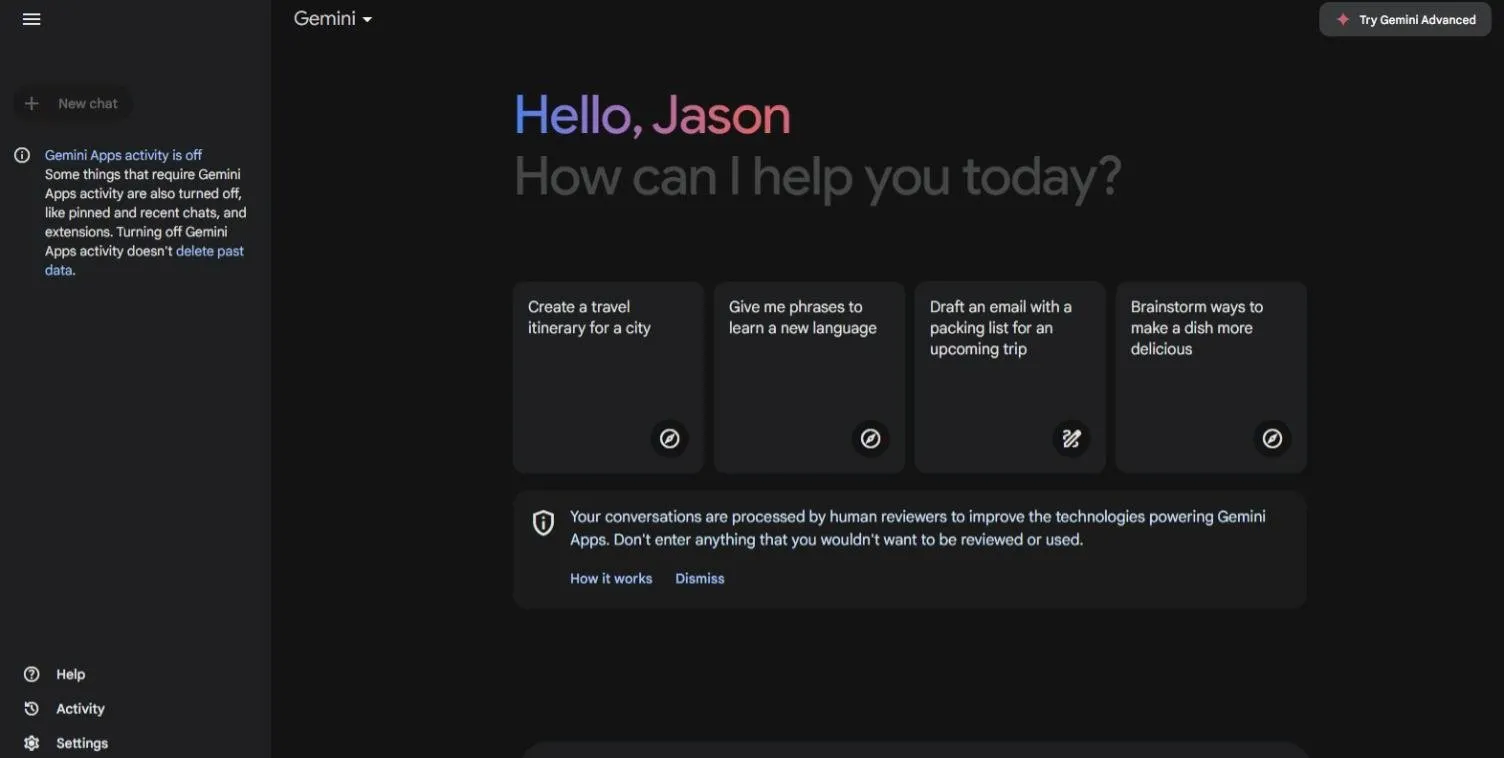
As soon as on the exercise display, customers can then flip off “Gemini Apps Exercise.”
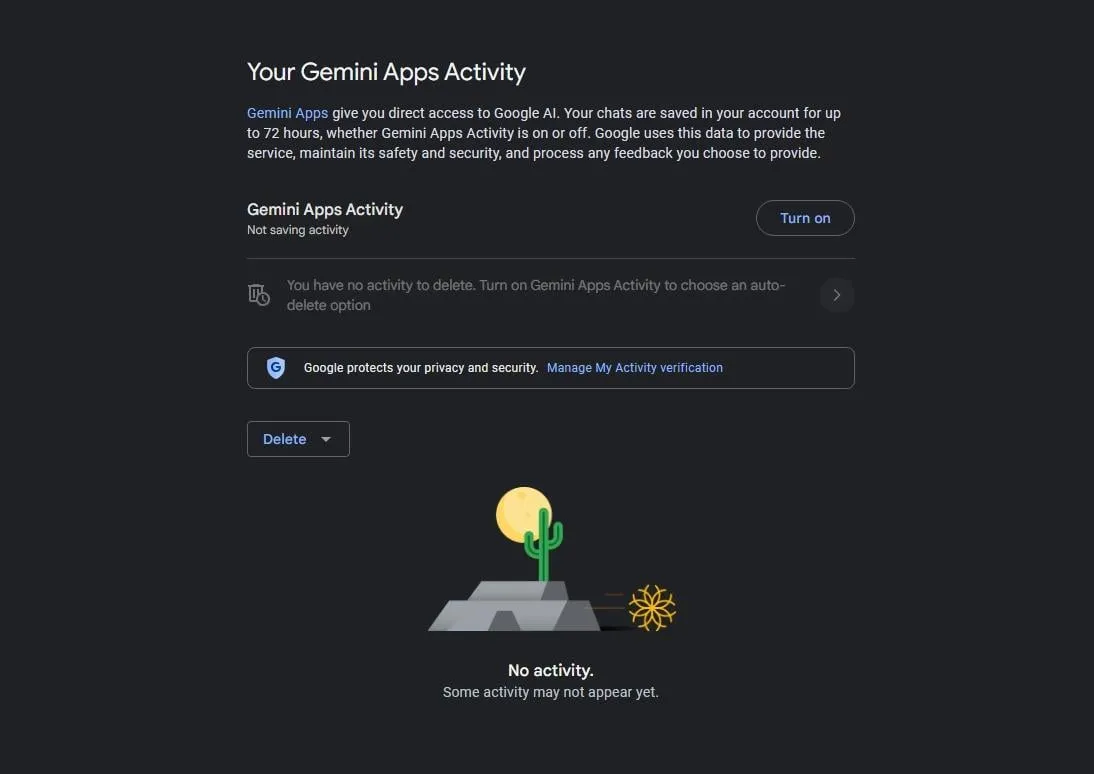
A Google consultant defined to Decrypt what the “Gemini Apps Exercise” setting does.
“For those who flip it off, your future conversations gained’t be used to enhance our generative machine-learning fashions by default,” the corporate consultant mentioned. “On this occasion, your conversations might be saved for as much as 72 hours to permit us to offer the service and course of any suggestions you might select to offer. In these 72 hours, except a consumer chooses to present suggestions in Gemini Apps, it gained’t be used to enhance Google’s merchandise, together with our machine studying know-how.”
There may be additionally a separate setting to filter out your Google-connected YouTube historical past.
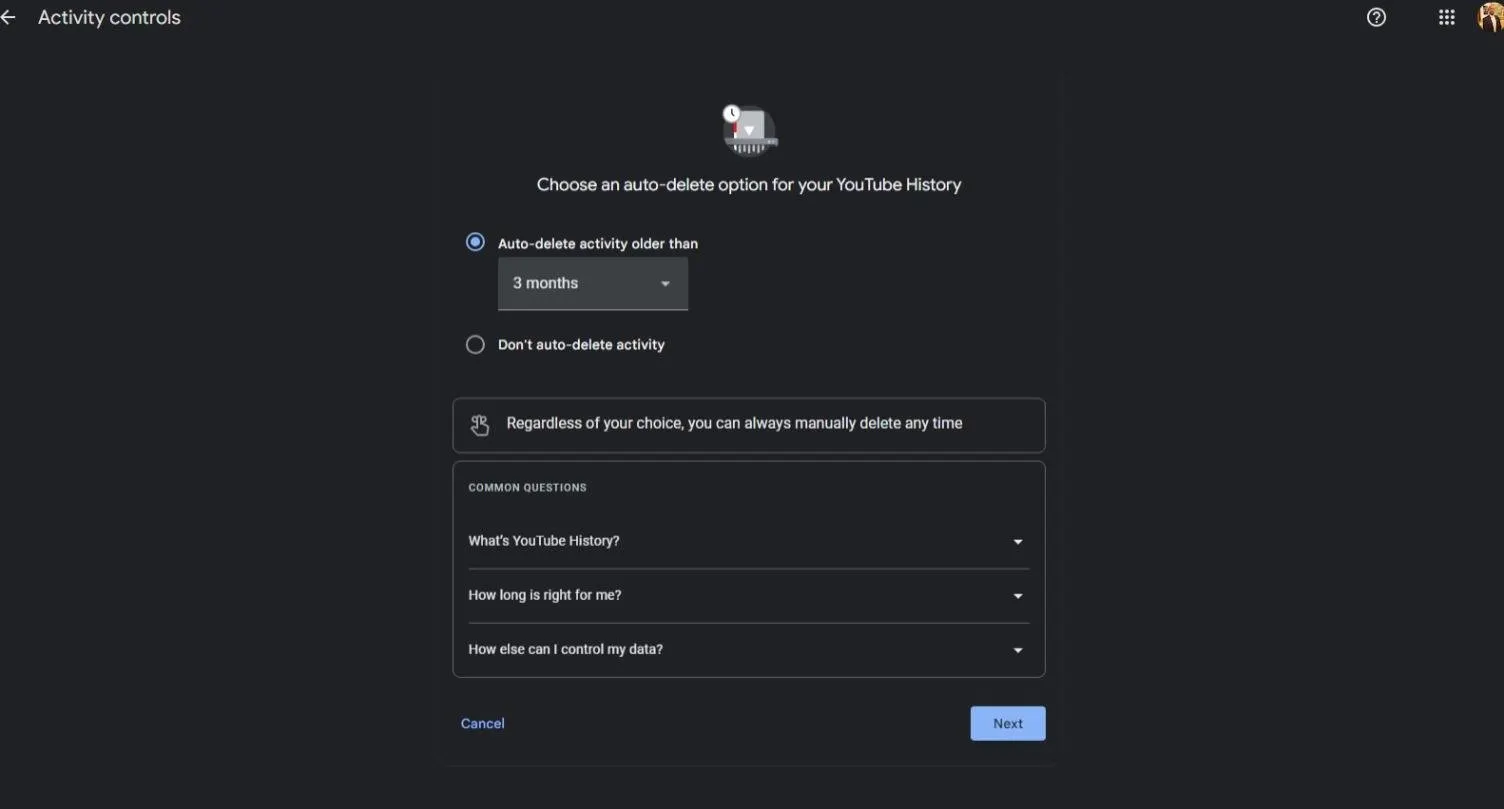
Copilot
In September, Microsoft added its Copilot generative AI mannequin to its Microsoft 365 suite of enterprise instruments, its Microsoft Edge browser, and Bing search engine. Microsoft additionally included a preview model of the chatbot in Home windows 11. In December, Copilot was added to the Android and Apple app shops.
Microsoft doesn’t present the choice to choose out of getting consumer knowledge used to coach its AI fashions, however like Google Gemini, Copilot customers can delete their historical past. The method just isn’t as intuitive on Copilot, nevertheless, as earlier chats nonetheless present on the desktop model’s dwelling display even after being deleted.
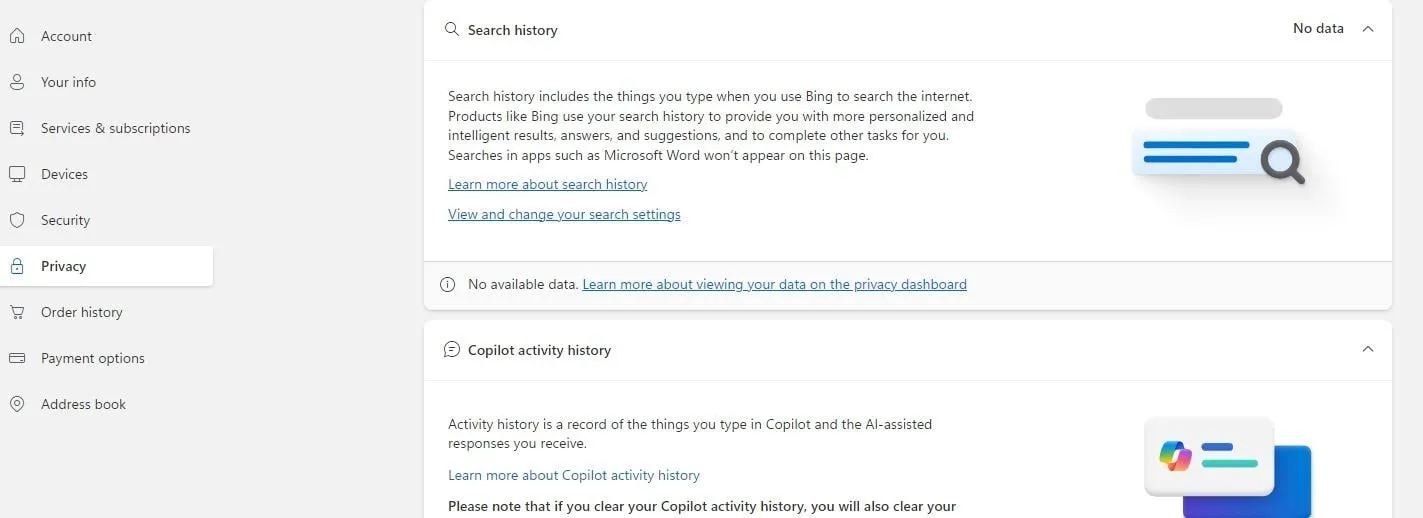
To seek out the choice to delete Copilot historical past, open your consumer profile on the high proper of your display (you have to be signed in) and choose “My Microsoft Account.” On the left, choose “Privateness,” and scroll right down to the underside of the display to search out the Copilot part.
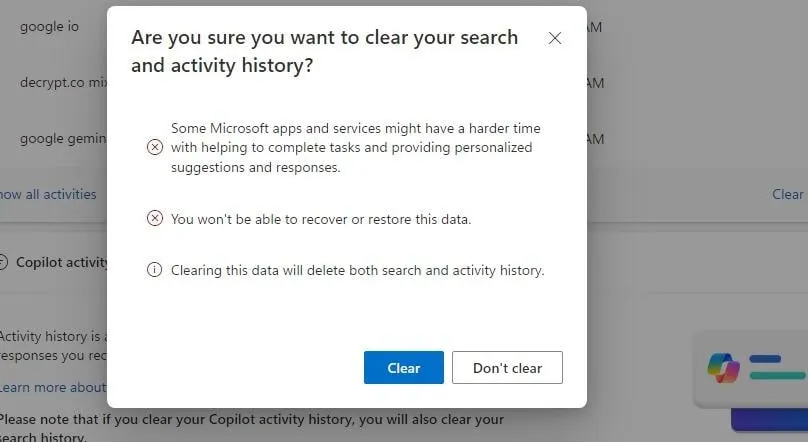
As a result of Copilot is built-in into Bing’s search engine, clearing exercise may also clear search historical past, Microsoft mentioned.
A Microsoft spokesperson advised Decrypt that the tech large protects customers’ knowledge by way of numerous strategies, together with encryption, deidentification, and solely storing and retaining info related to the consumer for so long as is important.
“A portion of the whole variety of consumer prompts in Copilot and Copilot Professional responses are used to fine-tune the expertise,” the spokesperson added. “Microsoft takes steps to de-identify knowledge earlier than it’s used, serving to to guard client id,” including that Microsoft doesn’t use any content material created in Microsoft 365 (Phrase, Excel, PowerPoint, Outlook, Groups) to coach underlying “foundational fashions.”
Meta AI
In April, Meta—the father or mother firm of Fb, Instagram, and WhatsApp—rolled out Meta AI to customers.
“We’re releasing the brand new model of Meta AI, our assistant, you could ask any query throughout our apps and glasses,” Zuckerberg mentioned in an Instagram video. “Our aim is to construct the world’s main AI and make it out there to everybody.”
Meta AI doesn’t present customers the choice to choose out of getting their inputs used to coach the AI mannequin. Meta does give the choice to delete previous chats with its AI agent.
To take action from a desktop pc, click on the Fb settings tab on the backside left of your display, positioned above your Fb profile picture. As soon as in settings, customers have the choice to delete conversations with Meta AI.
Meta does clarify that deleting conversations right here won’t delete chats with different folks in Messenger, Instagram, or WhatsApp.
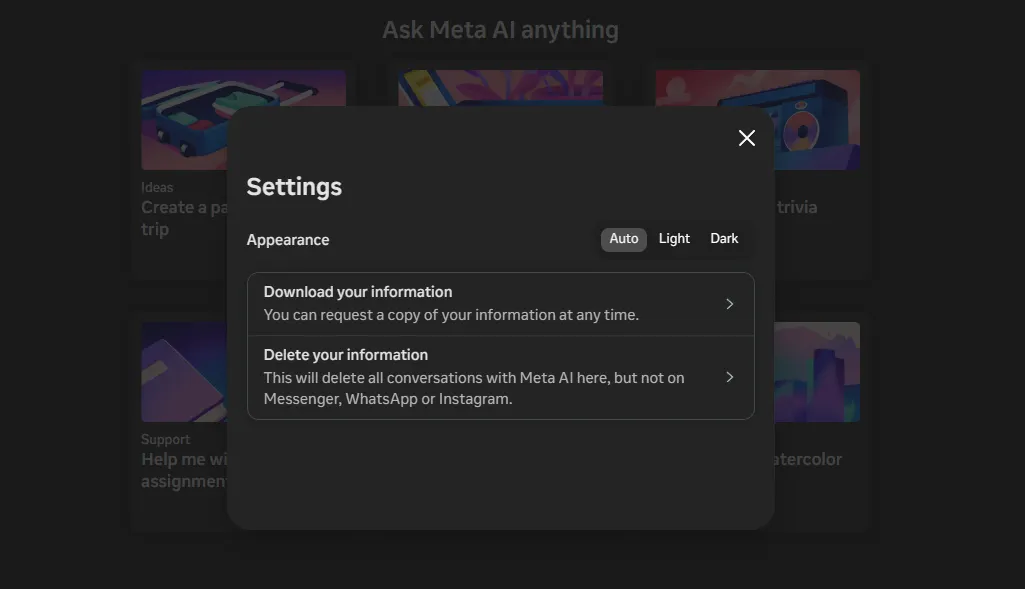
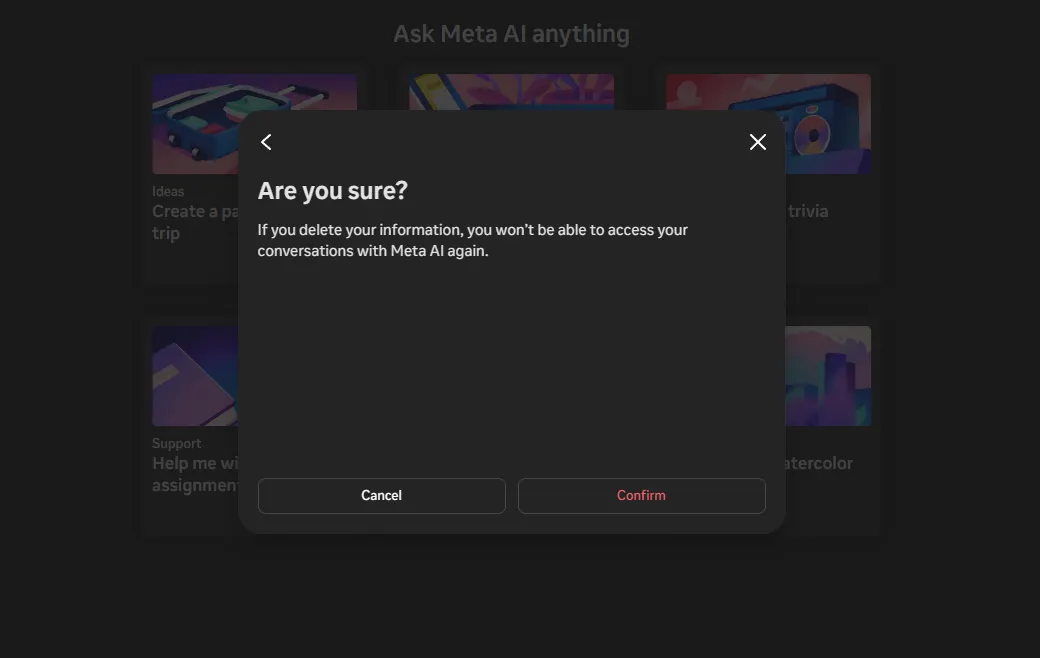
A Meta spokesperson declined to touch upon whether or not or how customers might exclude their info from being utilized in Meta AI mannequin coaching, as a substitute pointing Decrypt to a September assertion by the corporate about its privateness safeguards and the Meta settings web page on deleting historical past.
“Publicly shared posts from Instagram and Fb—together with images and textual content—had been a part of the information used to coach the generative AI fashions,” the corporate explains. “We didn’t practice these fashions utilizing folks’s non-public posts. We additionally don’t use the content material of your non-public messages with family and friends to coach our AIs.”
However something you ship to Meta AI might be used for mannequin coaching—and past.
“We use the data folks share when interacting with our generative AI options, similar to Meta AI or companies who use generative AI, to enhance our merchandise and for different functions,” Meta provides.
Conclusion
Of the foremost AI fashions we included above, OpenAI’s ChatGPT offered the best method to delete historical past and opt-out of getting chatbot prompts used to coach its AI mannequin. Meta’s privateness practices look like essentially the most opaque.
Many of those firms additionally present cell variations of their highly effective apps, which give comparable controls. The person steps could also be totally different—and privateness and historical past settings could perform otherwise throughout platforms.
Sadly, even cranking all privateness settings to their tightest ranges might not be sufficient to safeguard your info, in response to Venice AI founder and CEO Erik Voorhees, who advised Decrypt that it could be naive to imagine your knowledge has been erased.
“As soon as an organization has your info, you’ll be able to by no means belief it’s gone, ever,” he mentioned. “Folks ought to assume that all the pieces they write to OpenAI goes to them and that they’ve it without end.”
“The one method to resolve that’s by utilizing a service the place the data doesn’t go to a central repository in any respect within the first place,” Voorhees added—a service like his personal.
Edited by Ryan Ozawa.





